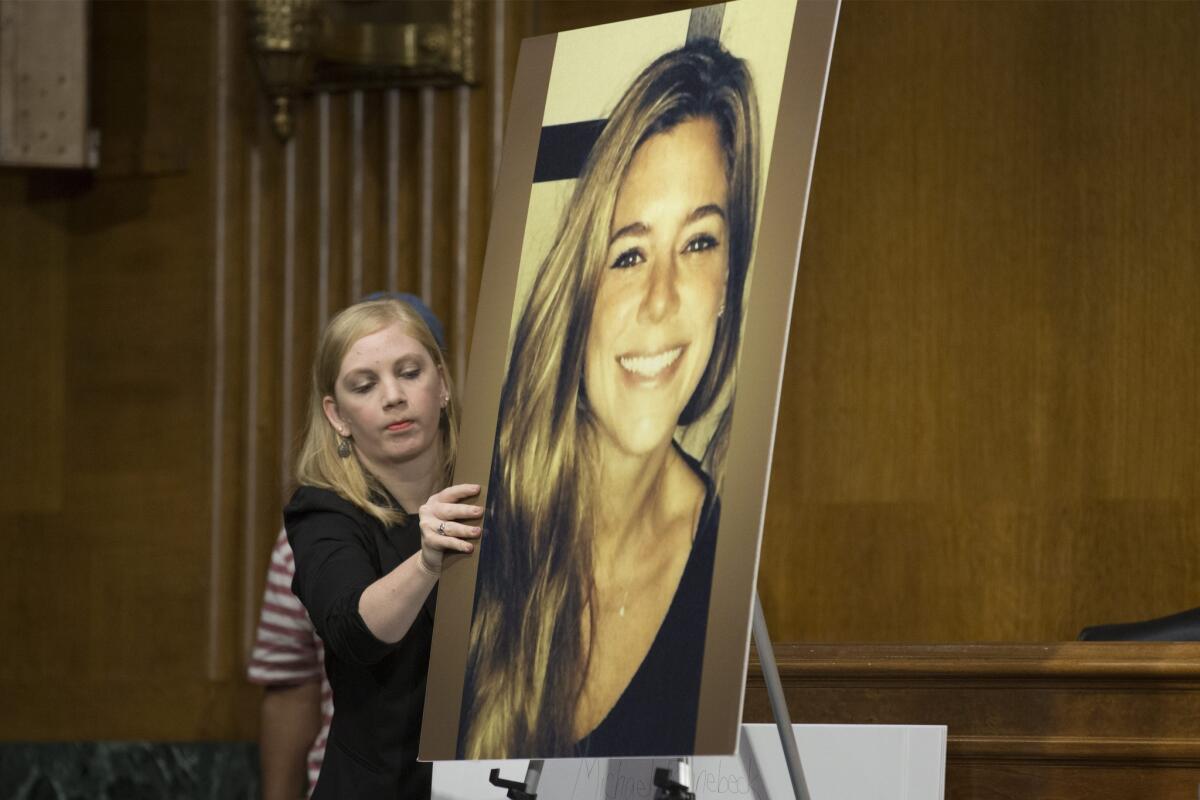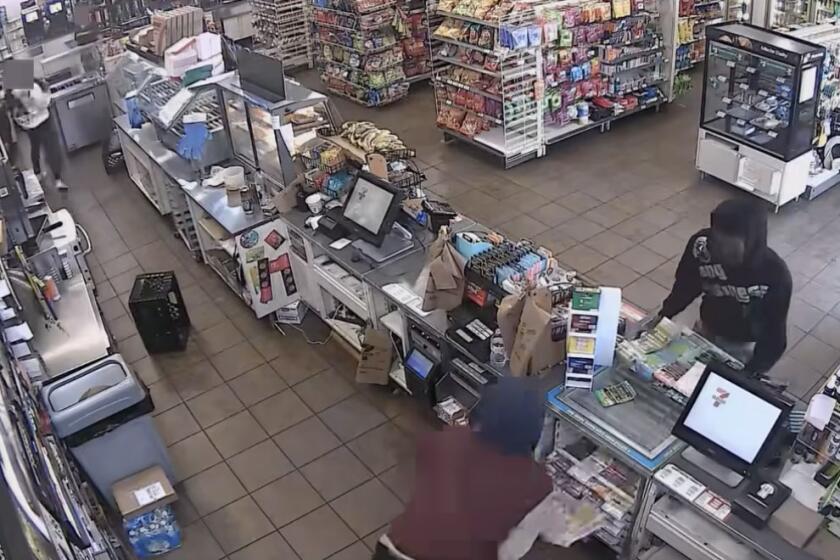How Trump made Kathryn Steinle’s slaying a center of illegal immigration crusade

The killing of Kathryn Steinle stunned San Francisco.
She was shot in the back in July 2015 as she walked with her father on Pier 14, in the heart of the city’s tourist district.
Less than an hour later, Jose Ines Garcia Zarate, a seven-time felon who had been deported from the U.S. to Mexico numerous times, was arrested about a mile away and soon charged in the killing.
But the crime took on a different dimension when then-presidential candidate Donald Trump began using the case as evidence for the need for a major crackdown on illegal immigration.
So the San Francisco jury’s not guilty verdict Thursday is being seen through both a legal and political prism.
Trump spoke out Thursday evening on Twitter, saying: “A disgraceful verdict in the Kate Steinle case! No wonder the people of our Country are so angry with Illegal Immigration.”
INTENTIONAL OR AN ACCIDENT?
What the jury had to decide
The jury’s decision was considered a surprise.
The trial hinged on whether jurors believed the killing was intentional or accidental, as the defense asserted.
Prosecutors had given the jury the option to convict Garcia Zarate of first- or second-degree murder or involuntary manslaughter.
His defense argued that the weapon went off accidentally in the defendant’s hands. (A few days before the shooting, the gun had been stolen nearby from a federal ranger’s parked car, but Garcia Zarate, who said he had found the gun, was not charged with that crime.)
During the trial, Garcia Zarate’s attorneys called an expert who testified that it was an unintentional ricochet shot that killed Steinle.
The prosecutor presented evidence that the pistol that killed Steinle required a firm pull of the trigger to fire and that Garcia Zarate threw the firearm into San Francisco Bay after Steinle fell, according to the San Francisco Chronicle. A crime-scene inspector also testified that the defendant had to have aimed the gun at Steinle for the bullet to follow the path it did.
“It was a verdict we were not hoping for,” San Francisco district attorney’s spokesman Alex Bastian said. “I know that both sides fought very hard, but again, the jurors are the ones who make a determination on a case, and we will respect that decision.”
TRUMP’S SHADOW IN COURT
The politics of the killing
Trump didn’t mince words, at one point calling Garcia Zarate “this animal” who “shot that wonderful, that beautiful, woman in San Francisco.”
This is one of several homicides involving those here illegally that Trump has cited. Another was the case of Jamiel Shaw, an L.A. high school football standout who was killed by a gang member in the country illegally.
While the political issues did not play out in court, they did come up in the aftermath of the verdict.
Defense attorney Matt Gonzalez expressed “sincere condolences to the Steinle family” but also raised the specter of Trump and the U.S. attorney general.
“Let me just remind them that they are themselves under investigation by a special prosecutor in Washington D.C., and they may themselves soon avail themselves of the presumption of innocence beyond a reasonable doubt…. I would ask them to reflect on that before they comment or disparage the result in this case,” Gonzalez said.
After the reading of the verdict, one of Garcia Zarate’s attorneys, Francisco Ugarte, said the case had become terribly politicized.
“From Day One, this case was used as a means to foment hate, to foment division and to foment a program of mass deportation,” he said. “It was used to catapult a presidency along that philosophy of hate of others. And I believe today is a vindication for the rights of immigrants.”
IMMIGRATION MATTERS
Piece of a larger debate
It remains unclear how much impact the jury’s verdict will have on the ongoing debate about immigration.
The Trump administration has tried to crack down on cities such as San Francisco that have laws designed to provide “sanctuary” to people here illegally. But the courts have blocked some of those efforts.
Several weeks ago, a federal judge blocked President Trump's executive order to cut funding from cities that limit cooperation with U.S. immigration authorities.
The administration has also moved to withhold one particular law enforcement grant from sanctuary cities, prompting a new round of lawsuits.
U.S. Atty. Gen. Jeff Sessions said in a statement that the “Department of Justice will continue to ensure that all jurisdictions place the safety and security of their communities above the convenience of criminal aliens.”
Laurie Levenson, a law professor at Loyola Law School, said the verdict showed that the jury evaluated the case based on the evidence presented in the courtroom, not on the political rhetoric sounding outside.
“There’s a huge danger in us making assumptions, based upon somebody’s immigration status, as to whether they’re guilty of a serious crime like murder,” Levenson said. “That can very much undermine the important presumption or innocence and undercut what our criminal justice system is designed to do.”
Start your day right
Sign up for Essential California for news, features and recommendations from the L.A. Times and beyond in your inbox six days a week.
You may occasionally receive promotional content from the Los Angeles Times.





